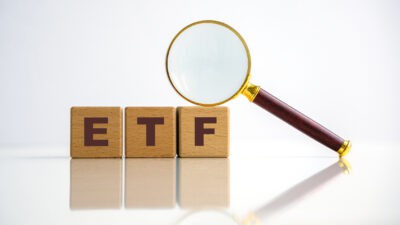The Vanguard Australian Shares Index ETF (ASX: VAS) currently (and comfortably) occupies the perch as the ASX's most popular index fund. Obviously, many ASX investors find this fund appealing.
This appeal might come down to a few different reasons. Perhaps investors like the diversification that this ASX 300-tracking fund offers. Perhaps it's the slow but steady track record of growth that VAS has delivered for decades now. Or perhaps it is this fund's dividend potential that investors find appealing.
As a representation of the broad Australian stock market, the Vanguard Australian Shares Index ETF has always been a decent investment when it comes to dividend income. After all, the top shares in this exchange-traded fund (ETF) include the likes of BHP Group Ltd (ASX: BHP), Commonwealth Bank of Australia (ASX: CBA), Westpac Banking Corp (ASX: WBC) and Woodside Energy Group Ltd (ASX: WDS).
Like all index funds, VAS is obligated to pass on any dividend income received from its underlying holdings to its investors. Given the heavy hitters, such as those listed above, that dominate its portfolio, VAS was always going to be a decent income investment itself.
Income investors will no doubt appreciate that the Vanguard Australian Shares ETF also pays quarterly dividends.
Over the past 12 months, VAS has indeed given ASX investors four dividend distribution payments totalling $3.27 per unit. That gives this ASX index fund a trailing dividend distribution yield of 3.21% at the current (at the time of writing) VAS unit price of $101.79.
Does VAS offer ASX investors full franking credits?
However, many ASX income investors also look for fully franked dividends from their shares and index funds. Franking credits are an effective way to boost the returns we enjoy from dividends. As such, the more franking a dividend-paying company offers, the more lucrative it is for income investors.
Most of the ASX's famous blue-chip dividend payers offer fully franked dividends. That includes CBA, BHP and the other stocks named above.
But what about the Vanguard Australian Shares Index ETF? Do VAS units offer full franking to ASX investors, too?
Well, VAS usually attaches franking credits to its dividend distributions. But not all the way.
As we established above, VAS is required to pass on any dividend income it receives from its underlying portfolio of ASX 300 shares straight to its investors. The problem is that while most of this income comes with full franking credits attached, not all of it does.
Many prominent ASX shares, including Macquarie Group Ltd (ASX: MQG), CSL Ltd (ASX: CSL), ANZ Group Holdings Ltd (ASX: ANZ) and Transurban Group (ASX: TCL), habitually pay only partially, or even unfranked, dividends.
As such, we usually see VAS pay out partially franked distributions in the range of 60-90%.
According to Vanguard, VAS' ASX dividend distributions came, on average, 78.28% franked over the 2024 financial year. Over FY2023, that figure was 87.73%, while FY2022 saw a partial franking rate of 64.01%.
So no, VAS' ASX income does not normally come with full franking credits attached.
However, the typically high range of partial franking means that ASX income investors can expect to enjoy at least some of the benefits of receiving franking credits by investing in this index fund.









